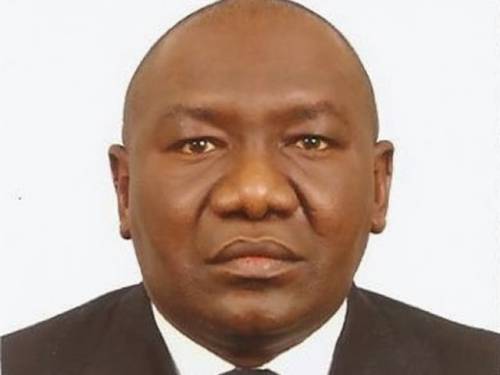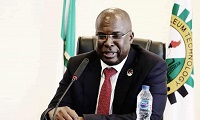Myriads of challenges confronting Indigenous oil companies ; how can they surmount them ?
By John Odhe
With the discovery of oil at Oloibiri in commercial quantity in 1956 and the subsequent shipment abroad by Shell D’Arcy in 1958, the over fifty years of oil industry operation in Nigeria had been largely dominanted by the first generation companies like Shell Petroleum Development Company of Nigeria LTD, Chevron Nigeria Limited, Nigerian Agip Oil Company (NOAC), Texaco Overseas (Nigeria) Petroleum Company, Elf Petroleum Limited and Mobil Oil.

The IOCs: why they divested
The International Oil Companies, after operating for over five decades in Nigeria’s Niger Delta Region, decided to divest their equity holdings from onshore to deep off-shore. Not many Nigerians have taken time to question the reasons for their actions. However, some critical stakeholders of the Oil and Gas industry are of the view that the IOC’s decision to divest leaves much to be desired.
As it were, the IOC’s penchant for tax evasion and lack of readiness to develop their host communities are some of the major reasons for their divestment. For instance, though they operate in same environment with their land lords, they the multinationals deliberately impoverish their hosts while living in affluence. They enjoy twenty-four electricity supply while their hosts live in perpetual darkness amidst degraded environment. Also, they employ divide-and-rule tactics amongst community folks as a means of depriving them from having a common voice to genuinely agitate for their fundamental rights.
Worst still, social responsibility, being a way of creating a bond between companies and their publics globally is seen by the multinational companies as a favour done their hosts in Nigeria. Also vexatious is the insincere manner in which the IOCs had handled Global Memorandum of understanding (GMOU) entered with Communities where they have been operating.
The above misdemeanor by the international oil giants had over the years created distrust, disharmony and animosity between them and their hosts. That is why the communities are yet to come to terms with the indigenous oil firms that have taken over from the IOCs in terms of trust. The local oil firms who stepped into the marshy shoes of the multinationals are now bearing the brunt of what they did not cause but inherited.
Some of the frontline indigenous firms that took the bold step to venture into the multibillion dollar Oil and Gas business include: Belema Oil, Aiteo Eastern Exploration and Production Company (AEEPC), Oando, Sahara Energy, Seplat and Energy, First Exploration and Petroleum Development Company Limited and others.
The myriads of challenges confronting indigenous oil giants seem daunting and capable of derailing the policy of the Federal Government on indigenization.
The multi-billion dollar oil industry is still crawling to survive because of the “debris†left behind by the foreign oil moguls that decided to divest having enjoyed the “milk†of the land and left “empty†carcasses for the indigenous oil companies that took up the challenge to grow the sector.
Africa Oil & Gas Reports estimated OML 29’s proven and probable reserves (P1+P2) at about 2.2 billion Barrels of Oil Equivalent, (BOE). Its hydrocarbon fields could deliver as much as 160,000 barrels of oil per day, and 300 million standard cubic feet of gas per day (mmsc/d) at peak output.
Shell, the operator of the oil block in joint venture sold its 30 percent stake in the block and pipeline. France’s, Total divested its 10 percent, while Italy’s Eni SPA sold its five percent to the indigenous consortium. The Nigerian National Petroleum Corporation, NNPC, retained its majority 55 percent under the Joint Operating Agreement, JOA.
The initial lease was granted by the Federal Government of Nigeria to Shell Petroleum Development Company in 1964 and renewed after twenty-five years in July 1989, for a term of thirty years expiring in June, 2019. OML29 licence was formally held by Shell Petroleum Development Company of Nigeria Ltd Joint Venture (SPDC), comprising Total, E&P Nigeria Limited and Nigerian Agip Oil Company Limited.
In September 2015, Aiteo Eastern Exploration and Production (E&P) Company Limited, a subsidiary of Aiteo Group announced their acquisition of (OML) 29 and the Nembe Creek Trunk Line (NCTL) and related facilities in the Eastern Niger Delta from the Shell Petroleum Development Company of Nigeria Limited (SPDC) at $1.7 billion.
Unarguably, local Nigerian oil companies have substantially improved their capacities and capability in the last few years since they became active in the sector, scaling up production capacity and flexing their financial muscles when necessary.
Benedict Peter’s Aiteo, without much ado, acquired OML 29 in 2015 for $2.8 billion and has since then increased crude production from an average of 23,000 barrels per day to over 90,000 bpd, while Seplat, another local oil company has emerged Nigeria’s largest listed oil and gas firm by market value.
Similarly, Wale Tinubu’s Oando Energy Resources (OER) has ramped up production, same with Nestoil, another indigenous oil firm, which has strong capabilities in engineering, procurement, construction and commissioning services.
First E&P also recently announced the commencement of oil production from the Anyala West field in OML 83 and 85 acquired from Chevron’s 40 per cent stake in the two oil blocks, not forgetting ND Western, which has vowed to take its gas production to above 510 million standard cubic feet per day and grow oil production to above 60,000 barrels per day in the nearest future.
It is not in doubt whether a number of Nigerian firms have developed capacity in the last couple of decades, but what is not clear is whether it has upskilled to the level of taking over the grand scale of divestment currently being planned.
Dollar Scarcity as challenge
But there are fears that the current dollar-crunch challenge in the country may hamper the plans by the companies to sell off their onshore and shallow water assets.
Recent information indicates that Nigeria’s lenders likely don’t have enough dollars to fund clients seeking to acquire the oil assets put on sale by IOCs, according to Nigeria ‘s biggest lender, Guaranty Trust Bank Plc.
The bank said it didn’t see the likelihood of any client, for instance, raising the estimated $2.3 billion needed to purchase the Shell assets.
CEO of the financial group, Segun Agbaje, said that such a deal would require a syndication of up to $1.8 billion, and it “can be very tough to raise this kind of funding locally at the moment.â€
“When I look at the books of Nigerian banks today, I don’t see a lot of dollar liquidity,†Agbaje told an investor conference call in Lagos, adding that “It’s becoming a very difficult deal for people to pull off.â€
Nigerian banks, which in 2013 syndicated $3.3 billion debt to Dangote Industries for a refinery and petrochemical plant and recently financed Heirs Holding’s $1.1 billion acquisition of OML 17, have seen their capacity to take on such deals wane considerably.
A slump in crude prices and an economic downturn arising from the coronavirus pandemic curbed foreign-currency flows into Africa’s largest crude producer and has continued to pressure its foreign reserves.
By divesting themselves of onshore assets, international multinationals are “technically†exempt from the 3 percent contribution to the HCDTF. These provisions confer cost advantages to oil multinationals, making it difficult for indigenous companies to compete and grow. One solution might be to amend the act to require all oil companies operating in Nigeria to contribute to the HCDTF.
What the Federal Government should do for indigenous oil companies
Knowing fully well the onerous task left over for local oil firms by the multinationals, the federal government should see to it as a duty to support indegenous Nigerian operators in the oil sector. There is no gain saying that after 35 years of drilling and polluting local communities, the oil majors have divested and dumped legacy issues and ageing infrastructure with the Nigerian upstream companies trying to find their feet.
While the federal government deserves commendation for setting aside three hundred and fifty million dollars through the Nigerian Content Development and Monitoring Board (NCDMB) as interventionist loan facility for local companies, government needs to do much. Considering the capital intensity involved in the oil and gas sector, any amount that could be assessed by the local oil firms from the federal government NCDMB fund can’t make more impact than a drop of water into the ocean. The federal government should financially encourage indigenous oil companies such as Aiteo and others that had handled this global emergency with 22 years of experience in the downstream and resources sector and mining conglomerate on the larger continent. The federal government should give grants and support to such companies as Aiteo so they don’t end up the way of Nitel and other Nigerian companies set up to fail.
More so, the federal government through its National Orientation Agency intensify awareness and sensitization campaigns especially in the oil bearing Niger region. The people should be made to understand that the indigenous oil firms are operated by their fellow Nigerians who have taken the pains to write the wrong of the IOCs.
What the host communities should know and do
Rather than fighting the indigenous oil companies, the communities should support their own and contribute to the development of the oil and gas industry. They should desist from any form of sabotage such as pipeline vandalism which will further degrade the environment and reduce the value of the 13% oil derivation as well as the 3% of oil produce recently allocated to host communities by the Petroleum Industry Art. The stae governments should also cooperate with the oil coys to ensure peace and the enabling environment for them .


